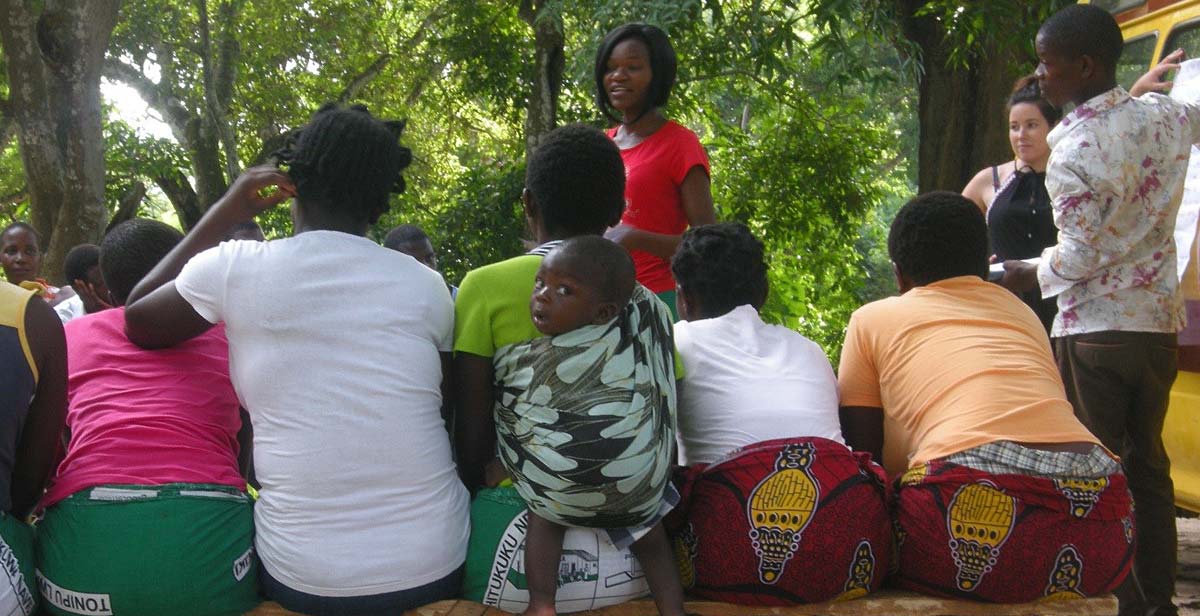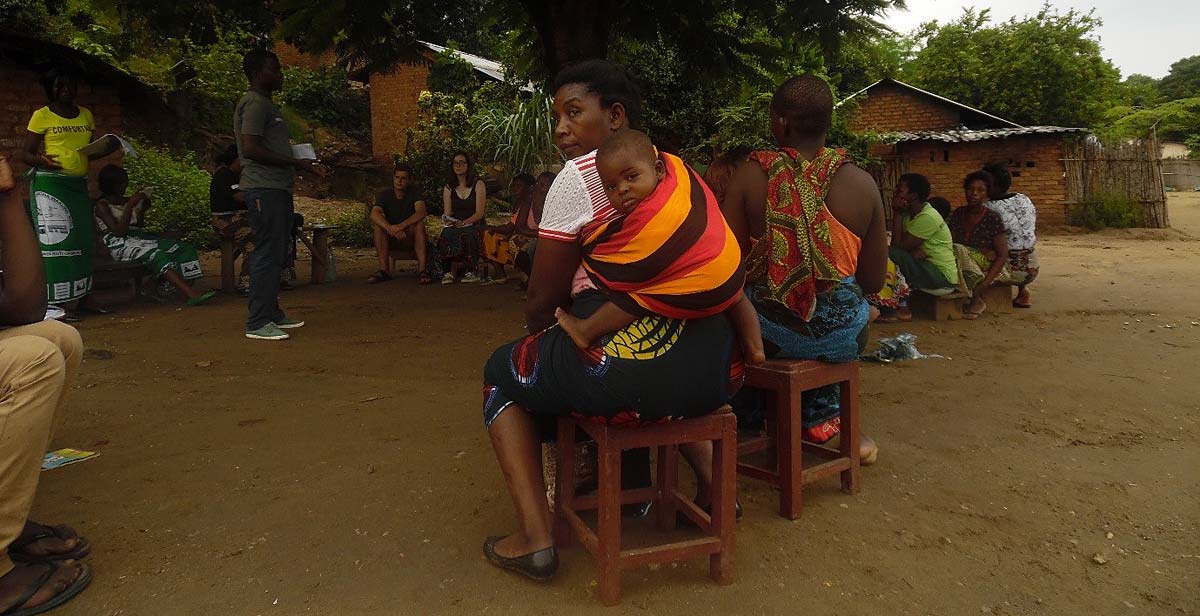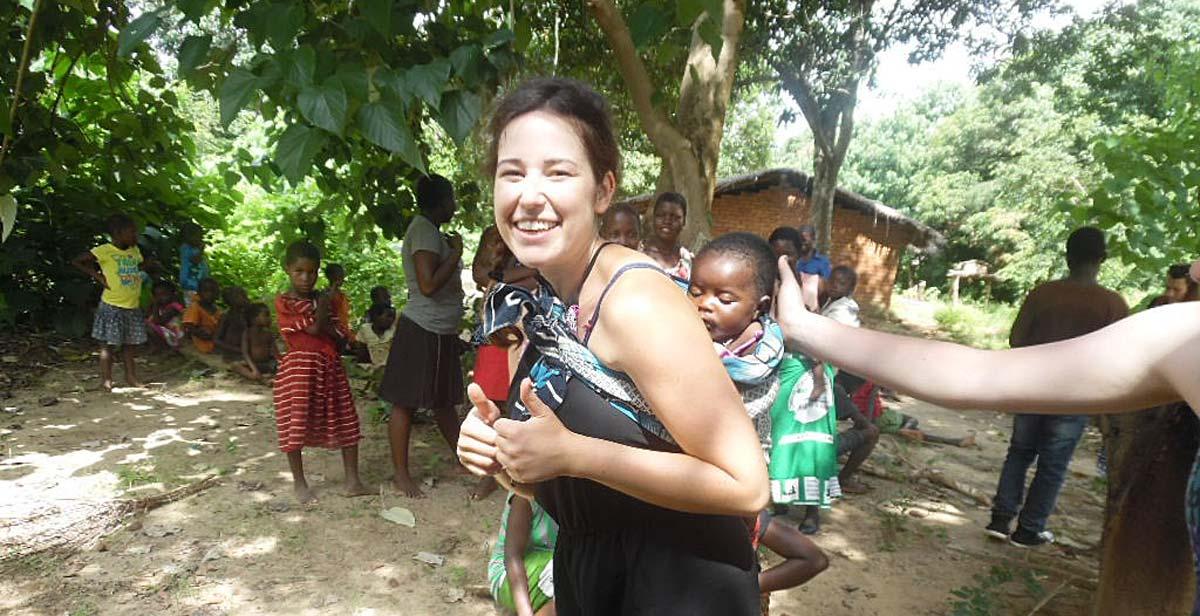In the UK the concept of attachment parenting (“AP”) has gained popularity in recent years, with celebrity endorsement from Angelina Jolie, Pink and many more reinforcing this trend. This way of approaching parenting in the early stages of a childs’ life looks to me like it could have been taken directly from observation of Malawian women - this “new way to do things” for Western women is normal care of a new born for Africa.
As a Midwife, at home in Scotland I give an internal “hurrah!” every time I see a woman brave enough to breast feed her baby in public. During the first few days of a baby’s life when I am trying to support a new family, it often seems like a huge mountain to climb simply to get any breastmilk in to a baby, often through a complicated process of trying different positions, expressing milk, even syringing the stuff in to babies sometimes. Then for a woman to go out and have the confidence to feed her baby in a shop, café, or in the street is a second, often impassable, mountain.
One thing I was instantly struck by here in Malawi was the amount of internal hurrahs I was doing for Mamas feeding their babies. Women in the UK often worry that breastfeeding their baby will hinder their own independence or ability to go about their normal activities. I have been so impressed by the degree of multitasking women here manage - carrying a baby in a chitenje, often feeding, a bucket of maize on their head, a bag over the shoulder, and often another child in tow as well. Women bring their babies to their market stalls, church and our workshops - their hands free method of carrying the baby around allows them to go everywhere they go without the challenge of pushing around a buggy in small spaces and the enormous bag of equipment that often seems to be necessary to leave the house for many Western parents.
There is little to differentiate between Malawian parenting and Attachment parenting - to compare the “seven Bs” of AP to what I have observed here:
1) Birth bonding - Spending time with the baby at birth and no separation in the first few days
Although this is partly to do with lack of resources (not enough beds in hospitals), it is very unusual for a mother and baby to be separated in the first few days. Maggie our host Mum had babies both here and in South Africa, where there was a separate baby room, and describes the differences - “In South Africa the hospital staff would call out “breastfeeding time” and we would all go through to the baby room, for about half an hour, until we were told to leave again. In Malawi we stay with the baby and feed it all the time”. Considering the recommendations of the World Health Organisation (WHO), the known benefits of Kangaroo mother care, and the baby friendly initiative in the UK, the Malawian approach seems more enlightened, although it is through necessity not design.

2) Belief in the signal value of the baby’s cry - Another thing that has struck me is how little Malawian babies cry. I can’t claim causation here - there are lots of confounding factors and I haven’t done a randomised controlled trial. It was something I had noticed though and on asking the other UK volunteers non-loaded questions about it they have observed the same. Babies will start to cry a little, but are swiftly moved or move themselves towards a breast and this has always been observed to work to resolve the upset. This approach to settling the baby was confirmed by Maggie - “They start to cry and then we give them breast and they are happy again” - a simple and effective approach.
3) Breast feeding - In a country where there is not reliable access to safe drinking water, and GDP per capita (2013) is 226 US Dollars (for comparison the UK figure is 41,787 US Dollars), the health and economic benefits of breastfeeding are even more pronounced than in the West.
Another internal hurrah resulted from my conversations with one of our national volunteers (Mac, who is 21 and male) and with Maggie - from their general descriptions of breastfeeding either could have written the WHO recommendations on infant feeding - “Oh, well we feed babies just breastmilk for six months - no water or other foods, then after six months they start to have other soft porridge and other drinks”. This does actually happen in Malawi, no-one I spoke to had heard of anyone close to them that had chosen not to breastfeed, not had enough milk, or given up before six months. The UK, by comparison, is struggling - one per cent of babies in the UK get the WHO recommended amount of breast milk (exclusive breastfeeding at six months), as compared to 72 per cent of Malawian babies.
4) Baby wearing - Babies are carried everywhere by their mothers for the first two years of their lives in a Chitenje - very much like the Rebozo slings becoming more popular in the west. Ok, they are mainly carried on their backs, not their front, but compared to what is seeming to me more and more like a ridiculous place to keep a baby - in layers and layers of blankets in a separate vehicle (pram/buggy) - its most of the way there. Baby and toddler wearing is the norm in Malawi, and discussing with Maggie clarified for me what is practised - Babies are carried everywhere in the mothers’ arms for the first two-three weeks - until the umbilical cord has separated and healed - then for a further few weeks in a chitenje on the Mother’s front - for easier and faster access to food for the baby - then on the mothers’ back until they are able to walk for themselves.

5) Bedding close to baby/co-sleeping - It is usual in Malawi for children to stay in the same bed with their parents up until they are around six years old. Although this would not fit with our guidelines on SIDS (Sudden Infant Death Syndrome/ Cot Death), it is a question of what is practical - in a resource poor country having a cot, a separate small bed that a baby can only use for a short time in its life would often be a difficult to justify expense. The safety of this is probably increased by the tradition for the mother and baby to sleep separately from the father for the early part of a baby’s life.
6) Balance/boundaries - Ensuring that the new mother/parents are well supported so that it is possible to sustain this level of responsiveness to the baby is also accounted for by Malawian culture. Women usually bring their mother, or an Aunt, to the hospital when they go to give birth (often staying there for days or weeks awaiting labour), for support, and she also has a large role when the baby arrives - bathing, settling, dressing the baby, making sure the mother gets food and rest and can focus on her recovery and feeding the baby.
7) Beware “baby trainers” - The concept of a strict schedule for babies’ eating and sleeping is not one that I have seen applied at all in Malawi. Maggie confirms this - “We feed the baby when it is hungry”, and this is helped by the tradition of food being brought to a woman with a young baby - every meal - so that she does not have to cook until she is fully recovered, and can focus on establishing breastfeeding and resting when the baby sleeps.
In my time so far as a Midwife, I have often heard new mothers be scolded, most often by older female relatives, for keeping their babies next to them, with reasoning like “you’ll spoil that child, picking it up all the time”, “you will still be breastfeeding when they leave for university”, “they will never learn independence”. This is the opposite of the approach here. In Maggie’s words, “we keep them next to us all the time so they feel the warmth and love of the mother”. Like in the UK, some children are spoiled, some are not, but here all are carried by their mothers until they are two or three. If anything I would say kids are more independent here than at home, many helping their parents or older siblings with tasks, walking around town with their friends, interacting confidently with adults other than their parents - very rarely have I observed the kind of tantrums that are often observed in the supermarket or street in the UK.
I am not the type of person (or Midwife) who believes there is a best way to be a parent - there are as many different styles as there are parents in the world, and the least successful approaches I have observed are when new parents try too hard to take every piece of advice offered. This is not meant to slate Western parents, or any parents at all - I am so in awe of the job that parents do, the responsibility it is to create a new life and then try to give this new person the tools to cope in this crazy world is enormous. Having completed this blog and reflecting on all this I will raise my glass of Fanta (dry programme) this evening to you all!
Written by ICS volunteer Megan Potter



